中国文化概况 chapter 2
中国文化概况
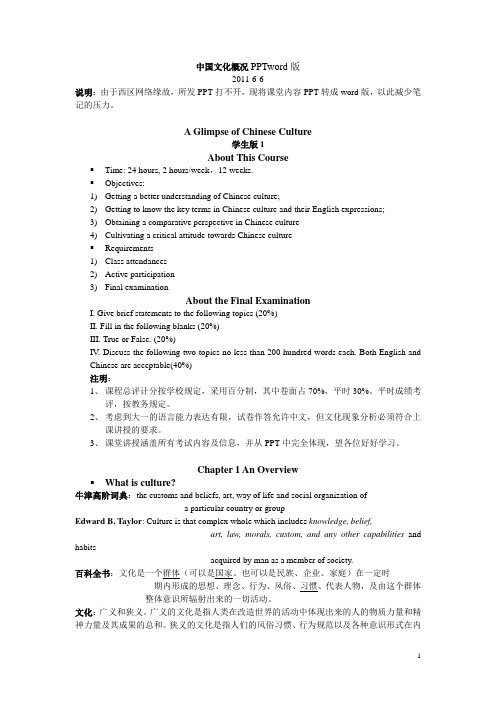
中国文化概况PPTword版2011-6-6说明:由于西区网络缘故,所发PPT打不开,现将课堂内容PPT转成word版,以此减少笔记的压力。
A Glimpse of Chinese Culture学生版1About This Course▪Time: 24 hours, 2 hours/week,12 weeks.▪Objectives:1)Getting a better understanding of Chinese culture;2)Getting to know the key terms in Chinese culture and their English expressions;3)Obtaining a comparative perspective in Chinese culture4)Cultivating a critical attitude towards Chinese culture▪Requirements1)Class attendances2)Active participation3)Final examinationAbout the Final ExaminationI. Give brief statements to the following topics (20%)II. Fill in the following blanks (20%)III. True or False. (20%)IV. Discuss the following two topics no less than 200 hundred words each. Both English and Chinese are acceptable(40%)注明:1、课程总评计分按学校规定,采用百分制,其中卷面占70%,平时30%。
平时成绩考评,按教务规定。
2、考虑到大一的语言能力表达有限,试卷作答允许中文,但文化现象分析必须符合上课讲授的要求。
中国文化概况课件Unit 1-3chapter 1 Overview
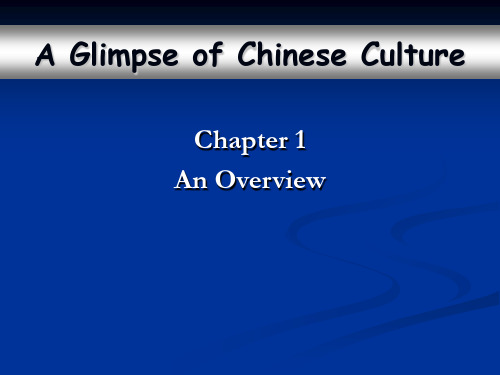
Climate
A warm climate and distinct seasons Continental monsoon climate in China: 1) cold and dry winters; 2) warm and humid summers;
An outline history (10 minutes)
The red color of the flag symbolizes revolution and the yellow color of the stars the golden brilliant rays radiating from the vast red land. The design of the four smaller stars surrounding a bigger one signifies the unity of the Chinese people under the leadership of the Communist Party of China.
Geography (15 minutes)
Location and Boundary Topography Rivers and Lakes Climate
Location and Boundary
What’s the location of China in the Map?
National Day
Chinese celebrate October 1 as National Day in honour of the founding of the People’s Republic of China (PRC) on October 1, 1949.
中国文化概况(English)英语版
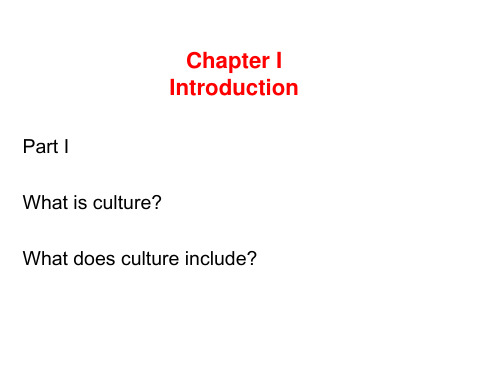
Agriculture as Economic Foundation
a farmer’s life is relatively fixed, settled, and relaxingly permanent---"the lack of mobility." (be free from risk and adventure; conservatism)
Farming was the major mode of production and family, the basic unit.
e.g: encouraging farming but limiting commerce, worship the land, fear for the heaven and the earth,
On Human Nature
Mencius
“人无有不善,水无有不下。”
“human nature is originally good”
Xunzi
“人之性恶,其善者伪也。”
“human nature is originally evil”
Imperial Confucianism--- Dong Zhongshu
Yuannan-Guizhou mountainous region; tropical rain forest
ocean
Influence: To provide natural advantages for Chinese culture
1) to develop independently 2) be free from the impact of foreign cultures Thus, Chinese culture is relatively stable , independent and distinctive.
中国文化概况课件Unit 1-3chapter 2 Philosophy and religions
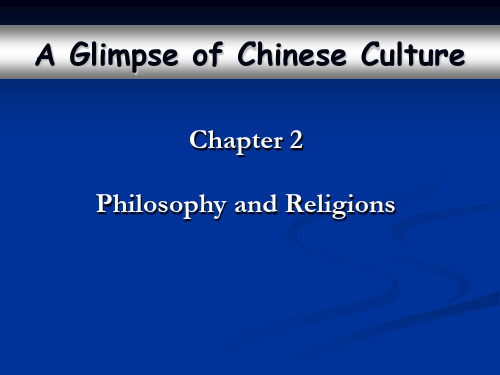
Confucianism
The school takes the teachings of Confucius as its core of thought and regards the words and deeds of Confucius as its highest code (准则) of behavior. It advocates the benevolence and justice, allegiance and forbearance (仁、义、忠、恕), the doctrine of the golden mean (中庸) and values the ethical relations of men.
The philosophy in Pre-Qin times (先秦子学)
The philosophy in Pre-Qin times was marked by the emergence of various ancient philosophical views. The most influential schools were Confucianism (儒家), Taoism (道家), Mohism (墨家) and Legalism (法家)
Legalism
Legalism, begun by Hanfeizi, espouses (主张) laying down laws to unify the thought of people, promoting agriculture to achieve affluence (富裕), waging (进行) wars to gain strength and power, and establishing a system of bureaucracy (官僚制度).
中国文化概况 Chapt 1 An Overview (I)
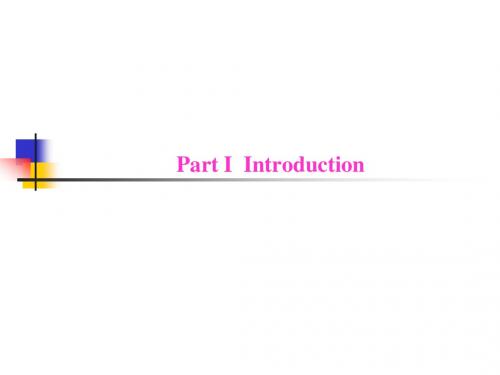
Different definitions of culture: Culture and cultivate
1) Culture refers to “the arts and other manifestations of human intellectual achievement regarded collectively”. (The New Oxford Dictionary of English, p.447)
3) Culture (from the Latin cultura stemming from colere, meaning “to cultivate”) is a term that has various meanings. The word “culture” is most commonly used in three basic senses: a) Excellence of taste (体验) in the fine arts and humanities (人文学科), also known as high culture; b) An integrated pattern of human knowledge, belief, and behavior that depends upon the capacity for symbolic thought and social learning; c) The set of shared attitudes, values, goals, and practices that characterizes an institution, organization or group (Wikipedia, the free encyclopedia, /wiki/Culture)
中国文化概论pp2
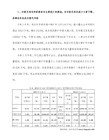
二、华夏文明的形成
夏是我国第一个王朝,继传17代,历时430 年。上(尚)忠”是夏的特点。历史学家宋镇 豪说:“河南登封告成镇王城岗城址,据说是 ‘禹都阳城’所在。勇于与洪水搏斗,在大地 上开辟生存空间的实干精神,是夏族尚忠文化 的基本精神气质。
二、华夏文明的形成
商自汤受命至纣,历时554年。商以盘庚迁 殷为界,分为前后两期。前期都城多迁移,已 为考古发现所证实。盘庚迁殷后,在河南北部 安阳平原建立起政治中心,由此迅速走向强大, 在武丁时期达到鼎盛。
三、春秋战国的纷争与交融
公元前771年,西周的最后一代王幽王被犬戎所 杀,西周结束。第二年,周平王率众迁都洛邑,开始 了历时500余年的东周时代。以公元前476年为界,东 周又分为春秋、战国前后两期。民力发育激发出的思 想意识,也是百家争鸣极其宝贵的部分。百家争鸣横 贯春秋战国,但也有前后的变化。
三、佛教的传播
2.佛教在南北朝的发展
佛教在南北朝的发展,有南北之分。在南朝, 皇帝和士族对佛教都表现出极大的热情。皇帝佞佛 以梁武帝为最甚,他曾经四次出家,大臣每次都用 巨资把他赎回,这样的行径陈后主也有过。此外, 齐代的竟陵王萧子显,世家大族如琅琊王氏、陈郡 谢氏、庐江何氏等,都崇奉佛法。
三、佛教的传播
3.佛教对南北朝社会、文化的影响
佛教在中国的大规模流传,必然与中国固有的社 会秩序、文化伦理产生矛盾和冲突。在北朝是寺院经 济妨碍国家利益,在南朝则表现为义理的冲突,有沙 门是否应向王者致敬之争,黑白论之争,神灭神不灭 之争以及夷夏之争等。通观当时的争议,调和论是主 流;重佛抑儒的倾向也是明显的。
四、民族大融合
(二)南北对峙的格局
南北对峙是中国历史上一个突出的现象。历史 上的南北对峙与中国地理上的南北分界线有密切的 关系,多体现为北方少数民族政权与南方汉人政权 之间的对峙。在魏晋南北朝时期,曾存在东晋、南 朝与北方十六国、北朝的对峙格局,其中以刘宋与 北魏的对峙最为典型。
中国文化概要 2

Some of the outstanding and legendary women in historyKey words: PowerOutstandingLegendaryDynastyBig constructionLv Zhi----by 杨婕Dou Yifang----by 张雪莲Xiao Zhuang----by 杨柳青 Shang Guanwaner----by 熊茜The Empress of The Western Han Dynast---Dou YifangDou Yifang,posthumous title was Xiaowen queen.She went blind when she under forty years of age.Then,she fought against with darkness and loneness on her own in the rest of her life.She had two sons and a daughter in total.She was the empress of Western Han Dynast.Her husband was the emperor Wen of Han.And she was the emperor jing’s mother of The Western Han Dynasty.Her family was very poor.She started with being a peasant girl.And then she became a shadow in the Palace.At length she became an outstanding woman who helped three emperors of The Western Han Dynast.The teleplay Schemes Of A Beauty almost told us about the life of the empress Dou.On the one hand,it showed us the love between she and the emperor Liu heng.On the other hand,we didn’t know the truth was that though the emperor loved her very much,and he loved a man named Deng Tong deeply too.Judging from these history,we could feel how difficult her life was.Her lived for 71 years,and she believed the Huang Lao school very much.Dou carried on the willing of the fist emperor of Han Liu Bang and developed it.She advocated Zhuang Zi’s belief that govern by doing nothing that goes against nature.It advanced the Rule of Wen and Jing.In some way ,it also made some devotion to the thrive and strong of The Han.She took the control of whole political situation and power of an imperial government and gave a base to the four hundred years of prosperity of the Han Dynast.Dou Yifang went blind when she under forty years ofage.Then,she fought against with darkness and loneness on her own in the rest of her life.She had two sons and a daughter in total.She became the mother of country with she character.Dou was Contented, modest, cautious, honest, virtuous.There is no doubt that she was one of the most outstanding and powerful women around the world.LV Zhi-The wife of HanGaoZu-LiuBang.She is the first woman who wielded power in Chinese history.She married LiuBang when she was 18. She brought up one son and a daughter .And Liu was 15 years older than her. In 202 BC, Liu became the emperor, and lvzhi was the empress.Her life was not as easy as we think so. And when people today remained of her, we usually think about how vicious she was. But actually she was also very kind and virtuous to her husband. On the way to be an emperor, lv helped Liu a lot. After she married Liu, her life was very hard. And during the chu-han war, lv was captured by the XiangYu. And there were four years after she captured.In order to let her son LiuYing become the emperor, she resorted various measures to strengthen her son’s power. And finally she did it. LiuYing was only 17 years old when he became the emperor. So Lv became the real decision maker in the West Han dynasty. Besides, she was not satisfied with this. She wanted her family replace the Liu’s position.By the way, she was very cruel and jealous, and she could do everything to achieve her goal. But she still died without success in her ambition.We all know that although LvZhi had done something really terrible, but indeed she was an excellent and extraordinary woman in the Chinese history. Maybe what she did was just for her family. We should have an objective opinion towards her life.Xiao Zhuang--a legendary in Qing dynastyXiao zhuang,a legendary woman in Qing dynasty. She spent his whole life cultivating her son(Fu lin) and her grandson(Kang xi) to be wise emperors. She is a famous queen and politician in the Chinese ancient history. In her life time, she born several daughters and only one son, which was the emperor in the future.In some words, the son established her as the highest ranking in the harem.There was a legend that xiaozhuang married to his husband’s brother for her son. But her son(fulin) failed to live up to his mother. Fulin gave up to be an emperor, he became a monk. Xiaozhuang had to let her eight-year-old grandson to be an emperor. As we all know, kangxi was one of the greatest emperors in the Qing dynasty.In 1613,xiao zhuang was born in Mongolia. In 1625, she married to huangtaiji when she was 13. From then on, she started his royal career.In 1642, the Qing military captured song hill, the capital of ming military was captured alive. But he was unwilling to tame to Qing dynasty. So, xiaozhuang decided to use the honey-trap to him. Finally, the capital of Ming was surrendered.I n 1643, huangtaiji was dead. Xiaozhuang’s son became the emperor, she became the mother of queen naturally. In order to get the support of the noble of han nation, she broke the tradition that person of Man nation couldn’t marry to person of Han nation. In 1653, she married princess heshuo to wusangui’s son.When kangxi became the emperor, there were some old officials wanted to usurper. Xiaozhuang collected her family’s strength to fight against these officials. When kangxi was 16, with the help of xiaozhuang, kangxi rooted out the four officials.In 1687, xiaozhuang was dead at the age of 75.Here existed several unsolved mysteries about xiaozhuang. She wasn’t buried in the imperial mausoleum. Some people said that she had married to duoergun, so, she had no qualification to be buried in it. The second mystery was whether she married to duoergun. As for statement, it was only a folklore. The authenticity remains to be proved.Whether they are true or not, we can’t deny the contributio n that xiaozhuang had gained. She did make great contribution to thedevelopment of Qing. When xiaozhuang’s son decided to be a monk, she didn’t give up. So, we shouldn’t give up easily. We should accumulate power waiting the eruption in the future.Shang Guan Wan Er -- an imperial concubine of Tang Zhong ZongShang Guan Wan Er has another name called Shang Guan Zhao Rong.And her nickname is Xiao Wan.She is a famous female officials and poet in Tang dynasty.Besides,she is also an imperial concubine of Tang Zhong Zong .Her grandfather is Shang Guan Yi.When her grandfather was killed by because of committing a crime,she was sent into the Ye Court with her mother.During this time,her mother educated her strictly.She was a smart girl.Gradually,she was familiar with books and history.So when she was 14 years old ,Wu Ze Tian put her in an important position.She did everything well,so Wu Ze Tian let her deal with the conduct of public affairs.Then,her power was stronger and stronger.When Tang Zhong Zong got the power back,she was invested with Zhao Rong.After that she had an important influence in politics and culture field.From then on,she began to be in charge of the government decrees and the statement.When she was in power,she advoca ted to enhance women’s social and political position.She founded Xiu Wen Guan and added the bachelor.For she was full of knowledge,she left some famous poems such as Cai Shu Yuan and 25 Poems about Visit Changning Princess’s Liubei pond. Unfortunately,She died when Tang Xuan Zong gathered his warriors to stage a coup.Someone says she is the first female prime minister in history.Most of people don’t think women can be powerful and strong.But there are so many examples that can certify the women can do same things as men.The empress of Western Han Dynast Dou Yifang proved that women can do it on us own.Lv Zhi、Xiao Zhuang and Shang Guanwaner--all history of them could teach us how to be powerfuland outstanding.There are so many outstanding women in the history.Their success experience told us that women should be looked down and women should try to prove and improve our ability .Lv Zhi----by 杨婕Dou Yifang----by 张雪莲Xiao Zhuang----by 杨柳青 Shang Guanwaner----by 熊茜。
中国文化概况 霍永红 Lecture 10 Architecture 2
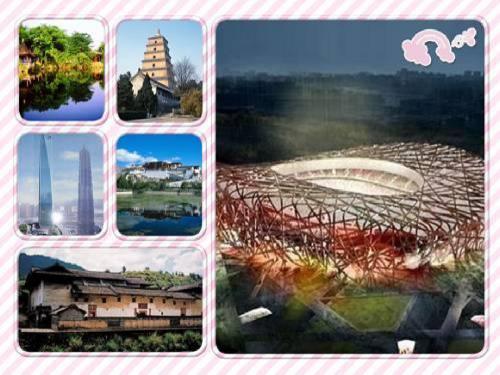
Doors in Sichuan Province
“Fu” on wall in Shaoxing, Zhejiang Province
Door decorations found in Zhejiang
What’s triple function does this carving provide?
Wenshou鸱吻/吻兽 or zoomorphic ornaments are statues of dragons and other animals, that are found on the roofs of Chinese temples, palaces, and homes. Examples of Wenshou as Imperial roof decoration are found within the Imperial Palace Museum of the Forbidden City, Beijing, China.
螭纹/螭吻: ridge-devouring beast 吞脊兽
The Hall of Supreme Harmony
乾清宫/ Palace of Heavenly Purity
坤宁宫 /Palace of Earthly Tranqu concubines
1. Decoration of Imperial Buildings
Imperial roof decoration Chinese guardian lions Western names Appearance Image gallery
1.1 Zoomorphic Ornaments
龙、凤、狮子、天马、海马、狻猊 (suān ní)、押鱼、獬豸(xiè zhì )、 斗牛、行什(háng shí )
- 1、下载文档前请自行甄别文档内容的完整性,平台不提供额外的编辑、内容补充、找答案等附加服务。
- 2、"仅部分预览"的文档,不可在线预览部分如存在完整性等问题,可反馈申请退款(可完整预览的文档不适用该条件!)。
- 3、如文档侵犯您的权益,请联系客服反馈,我们会尽快为您处理(人工客服工作时间:9:00-18:30)。
Stress on the Intuition
Chinese ancient philosophy did not adhere to formal rules of structure and system in thought and often resulted in fragmented (片断的) thoughts written on paper. It was through reflecting on life’s experiences and intuition that philosophical ideas were formed.
Legalism
Legalism, begun by Hanfeizi, espouses (主张) laying down laws to unify the thought of people, promoting agriculture to achieve affluence (富裕), waging (进 行) wars to gain strength and power, and establishing a system of bureaucracy (官僚 制度).
e.g. Confucianism’s knowledge of life through disposition and consciousness; Taoism’s search for spiritual freedom; Buddhism’s “Nirvana” (涅磐).
➢ The Development of Ancient Chinese Philosophy
(20 minutes)
➢ The Basic Features of Ancient Chinese Philosophy (10 minutes)
➢ Characteristics of Chinese Ethics and Morality (10 minutes)
The most influential schools were Confucianism (儒家), Taoism (道家), Mohism (墨家) and Legalism (法家)
Confucianism
The school takes the teachings of Confucius as its core of thought and regards the words and deeds of Confucius as its highest code (准则) of behavior.
Ancient Chinese philosophy stresses on harmony, and the pursuit of harmony between man and nature and also between man and man.
E.g. Mencius said “Opportunities vouchsafed by Heaven are less important than terrestrial advantages, which in turn are less important than the unity among people. (天时不如地利,地利不 如人和) ”
Stress on Practice
Chinese ancient philosophers were concerned with the relationship between knowledge and practice.
Example: “To prefer it is better than only to know it. To delight in it is better than merely to prefer it, To delight in it is better than merely to prefer it.”(知之者不如好之 者,好之者不如乐之者。)
Spiritual Life over Material Life
Chinese people advocate morality in their behavior.
Self-cultivation in morals is emphasized, and is considered to be more important than one’s material life.
The Development of Chinese Philosophy
The philosophy in Pre-Qin times (先秦子学) The orthodox philosophy during the Han
Dynasty (两汉经学) Metaphysics during the Wei and Jin dynasties
In politics and ethics, Mohism proposes honoring virtuous people, opposing fatalism (宿 命论) and aggressive wars, and upholding thriftiness and simple funerals.
Based on the work of Dao De Jing, Taoism promotes the belief that a person should live a simple life, not to strive for wealth, fame or power, which will only give one worries and trouble.
➢ Seeking Harmony and Maintaining Equilibrium(平衡)
➢ 2. Collectivism over Individualism ➢ 3. Spiritual Life over Material Life
Seeking Harmony and Maintaining Equilibrium (平衡)
A Glimpse of Chinese Culture
Chapter 2 Philosophy and Religions
本章教学的目的
1. 中国古代哲学发展及内容的基本了解; 2. 中国主要宗教的基本概况; 3. 中国传统美德的继承和发扬。
本章教学的重难点
1. 中国古代哲学的发展史; 2. 中国哲学的基本特点及伦理道德; 3. 中国道教和佛教; 4. 学生PPT展示。
To Chinese people, harmony is powerful word. Maintaining equilibrium is the ultimate purpose of harmony.
Collectivism over Individualism
Traditional Chinese values attach great importance to collective interest. An individual’s values can be realized only within society as a whole, as that is the groundwork of one’s existence.
本章教学的时间安排
教师课堂讲解 (70 minutes)
➢ Chinese Philosophy (40 minutes) ➢ Chinese Religions (30 minutes)
PPT 展示 (30 minu源自es)Chinese Philosophy (40 minutes)
dynasties (明清实学)
The philosophy in Pre-Qin times (先秦子学)
The philosophy in Pre-Qin times was marked by the emergence of various ancient philosophical views.
Characteristics of Chinese Ethics and Morality
Traditional Chinese ethics that reflect the high standard or moral pursuit of the Chinese people and embrace ethical wisdom of lasting value:
Stress on Morality
Every school of ancient Chinese philosophy was a kind of moral philosophy. Almost every philosophy stressed moral practice.
Stress on Harmony
It advocates the benevolence and justice, allegiance and forbearance (仁、义、忠、恕), the doctrine of the golden mean (中庸) and values the ethical relations of men.
(魏晋玄学) The buddhist philosophy during the Sui and
Tang dynasties (隋唐佛学) Neo-confucianism in Song and Ming dynasties
(宋明理学) Application philosophy in the Ming and Qing
The Basic Features of Chinese Ancient Philosophy
